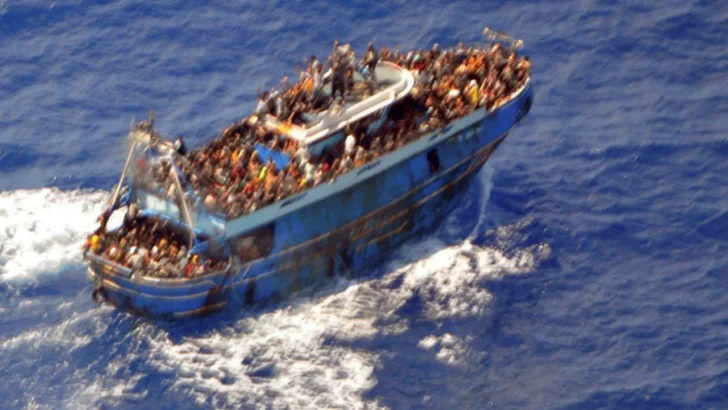Alongside 195 organizations worldwide, we demand that the UN establish an independent monitoring mechanism to investigate the treatment of migrants in border areas and its underlying structural causes.
During the 53rd Session of the Human Rights Council, we expressed our concern to Member States and Observers about state policies and practices that result in deaths, torture, and other serious human rights violations at and around international borders. In light of this situation, we called for the creation of an independent international monitoring mechanism to investigate grave human rights violations in border areas and the root causes of these violations.
The most recent and tragic case is the sinking of a vessel off the coast of Greece on June 14. Between 400 and 750 people were on board, of which only 104 individuals were rescued, 81 bodies were recovered, and hundreds remain missing.
Currently, many wealthy countries are collectively attempting to prevent migrants and asylum seekers from leaving their territories and reaching their borders by exerting pressure on countries of origin and transit. These widespread practices of externalization of migration controls significantly contribute to deaths, torture, and other serious human rights violations. Specifically, individuals from certain national origins, ethnicity, race, or religion are obstructed from exercising their right to migrate and seek asylum through safe routes, forcing them to undertake increasingly dangerous journeys.
This latest tragedy on the shores of Greece, adding to the extensive list of deaths and disappearances in the Mediterranean Sea, highlights the irreparable consequences of securitization and border control policies, as well as the repeated failure of States to uphold the most recent agreements on this issue (such as the 2016 New York Declaration and the 2018 Global Compact for Migration, to name just two).
In South America, we are witnessing the emergence of increasingly stringent securitization and restrictive policies aimed at controlling migratory flows by hindering entry into destination countries. Practices that were once thought to be limited to northern countries or the European continent—e.g., border externalization or the deployment of armed forces in these areas—are spreading throughout our region with little opposition, pushing the limits of what is permissible.
Since the pandemic, we have documented the use of military forces to prevent entry into territories. At that time, the health crisis and the state of emergency declared in all countries in the region were used as justification for their use. The consequences of border closures and militarization were extremely grave, including the use of warning shots to deter migrants, including children, the deployment of tear gas, confrontations, and the use of force.
Recently, we have witnessed at the border between Chile and Peru how the use of armed forces to manage flows exacerbates conflicts and increases the vulnerability of individuals in mobility situations. Military agents lack the necessary tools and training to conduct migration controls or assess the protection needs of vulnerable migrant populations. Furthermore, the expansion of the powers of the armed forces in border areas and the declaration of states of emergency to respond to human mobility blur the boundaries between defense, security, and social or humanitarian policies. The expansion of their powers can entail risks of excessive use of force and violation of the human rights of migrant individuals.
The creation of an independent monitoring mechanism in border areas is crucial to investigate the grave situations that occur there, as well as to prevent them and provide recommendations for border policies that respect international standards and human dignity.
Please enter here before July 13th to add your institutional signature to the statement on the independent monitoring mechanism.
Other interventions at the Human Rights Council
During the 53rd Session, we also participated in a side event on “Obstacles to the regularization of migrants and asylum seekers. Trends and challenges in the Americas” and in the interactive dialogue with the Special Rapporteur on the human rights of migrants, who presented his latest thematic report on migration regularization.
In these spaces, we emphasized the need for states to replace the securitization and restrictive model with broad, accessible, and permanent regularization policies that guarantee the rights of migrants and their international protection, as proposed in the report.
The majority of the tragedies and obstacles faced by migrants could be avoided through the creation and expansion of safe, legal, and accessible pathways for those who choose to migrate.

